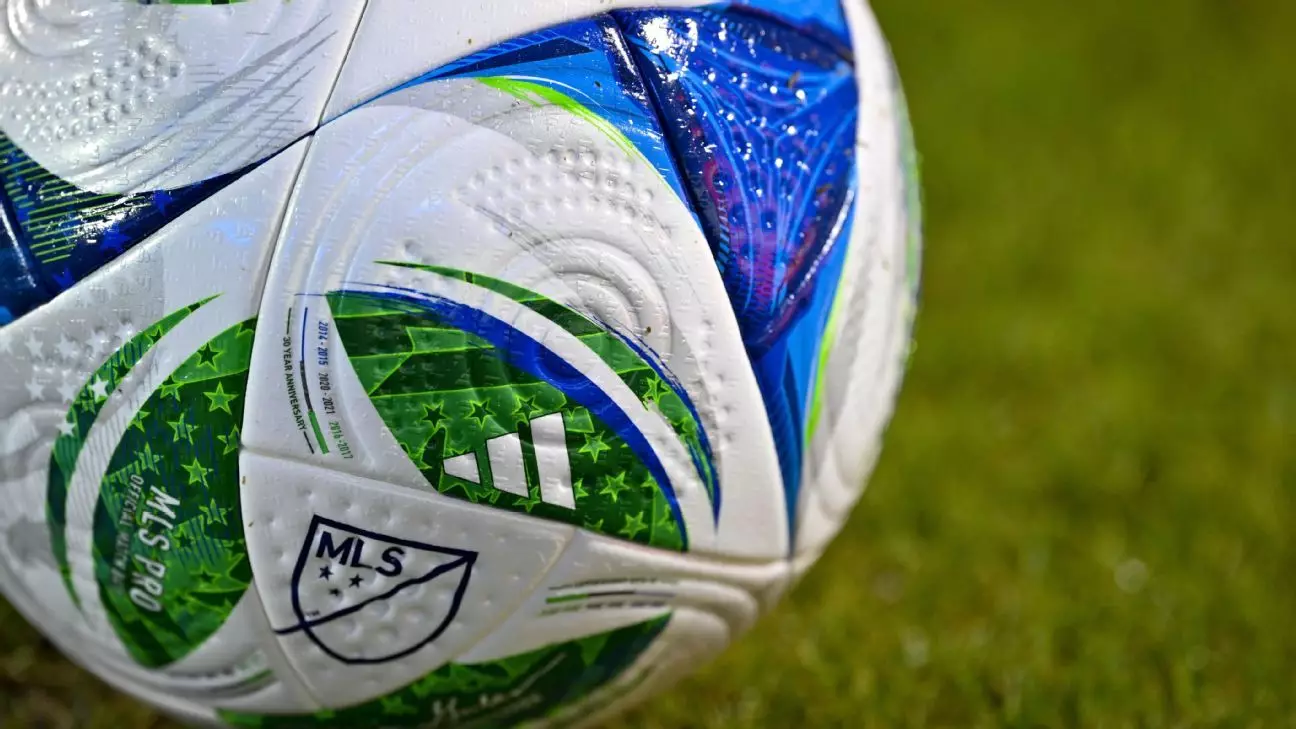In the realm of professional sports, the balance of power between players and league executives is a persistent source of contention. The recent negotiations between Major League Soccer (MLS) and the MLS Players Association (MLSPA) shed light on these dynamics, particularly concerning the compensation structure for the FIFA Club World Cup. Despite the grand spectacle of the tournament that teams such as Seattle Sounders FC, LAFC, and Inter Miami CF will participate in, it is clear that the underlying financial discussions are anything but celebratory. In fact, they exemplify how large organizations can undervalue the very athletes who strive to elevate their brand to international heights.
On June 1, players from the Seattle Sounders FC took a courageous stand against perceived injustices by staging a protest at their home ground, wearing shirts boldly branding the phrases “Club World Cash Grab” and “Fair Share Now.” This act was not just a mere publicity stunt; it was a significant reminder of the players’ commitment to both their worth and their colleagues’ rights. The backing of the MLSPA for this demonstration signifies a deep-rooted desire for equity and recognition within a framework that has historically favored league profits over player compensation.
Understanding the Financial Disparities
The central crux of the issue resides within the collective bargaining agreement (CBA), which has come under scrutiny for its ostensibly outdated clauses regarding revenue sharing from outside tournaments. Under the current CBA, players receive 50% of the revenue generated by their participation in outside competitions, capped at a relatively paltry $1 million. In light of the substantial $28,650,000 windfall MLS anticipates from FIFA, the players’ allocated share of just 10% is ingeniously frustrating. It raises a critical question: how can a league expect its players to pour their heart and soul into competition when the financial rewards are not equitably shared?
The MLS’s latest proposal of offering a 20% share of performance-related payments for wins and draws might sound appealing on the surface. However, this latest offer can also be perceived as a mere superficial gesture, especially when contrasted with global compensation norms. The lack of satisfactory remuneration for the players contributes to a sense of disenfranchisement and disappointment. The frustration expressed by the MLSPA highlights a larger narrative of systemic undervaluation of players’ contributions, which persistently emerges in various professional leagues, not just within soccer.
The Role of Unity in Advocacy
As the negotiations remain stagnant, it becomes evident that unity among players is paramount. The players’ collective response to the league’s proposed deal is not just about monetary compensation; it encompasses a greater fight for respect and acknowledgment of their hard work and dedication. It is disheartening to observe that players have to fight for compensation structures that align with both their contributions and the profits accrued by the league.
The MLSPA’s labeling of MLS’s proposals as “retaliatory” unveils deeper tensions within their relationship. Such characterizations do not simply signify disagreements over numbers; they reflect player perceptions of a lack of collaborative spirit from the league. This reflects a broader issue often encountered in labor negotiations, where a lack of goodwill can impinge on productivity and affect the welfare of the athletes involved. In this case, the MLS’s unwillingness to negotiate on certain terms may inadvertently distract players from their critical preparation for the upcoming Club World Cup.
Advocacy and the Potential for Change
Despite the frustrations, the situation presents an exciting opportunity for advocacy, one that could lead to significant changes in how players are treated within the league. The collective voice that players like those from the Seattle Sounders are amplifying poses a threat to the status quo while also shining a light on the importance of solidarity amongst athletes in advocating for their rights.
Labor laws grant players the right to engage in protected actions, empowering them to stand up for fairness, even amidst the restrictions imposed by the current CBA. The players’ growing awareness of their collective strength combined with ongoing public support amplifies the possibility of transformative change within MLS.
As the Club World Cup approaches, the implications of this negotiation stretch beyond mere financial concerns. The players demonstrate that their demand for respect and fairness is crucial not just for their individual futures, but for the integrity and evolution of the sport itself. As they step onto the international stage, their struggles for rightful compensation serve as a powerful reminder of the ongoing fight for equity in sports.


Leave a Reply